Bringing a new pet into your home is an exciting experience. From the joy of watching them play to the warmth of their cuddles, your new furry friend has already stolen your heart! From spending hours picking out the perfect toys and stocking up on delicious treats to pet-proofing every corner of your home, and creating a cozy sleeping spot, it seems like you’ve thought of everything to ensure a smooth transition into their new life with you.
However, amidst all the excitement and preparation, there’s an important step that should not be overlooked: scheduling your pet’s first vet visit. While it is not as fun and exciting to bringing your pet home, the first vet visit is a crucial milestone into your pet’s well being.
We understand that visiting the vet can be daunting for both new and seasoned pet owners alike, but fear not! In this latest post, we explore everything you need to know about your pet’s first vet visiting and how to make it a seamless, and (almost) stress free experience so that you are confident and prepared for this important event.
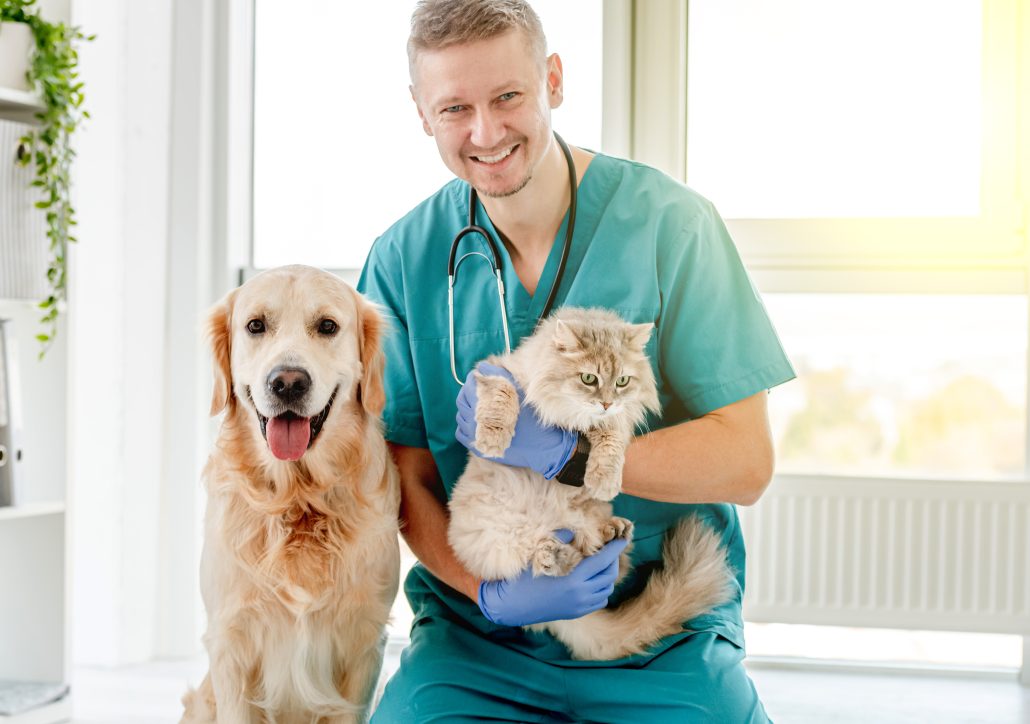
Why You Should Take Your Pet To The Vet
No matter how healthy and vibrant your pet may seem, regular vet visits are absolutely crucial for their overall health and well-being. Just like humans, pets require preventive care, early detection of potential health issues, and routine check-ups to ensure they lead a happy and thriving life.
By taking the plunge and scheduling their very first vet appointment as early as possible, you are not only providing a solid foundation for their long-term health and happiness, but you also have the opportunity to establish a strong and trusting relationship with a dedicated veterinarian who will be your partner in their ongoing care.
- Early detection of potential health issues: Regular vet visits allow for the early detection of any underlying health concerns, even if your pet appears healthy on the surface.
- Vaccinations and preventive care: Your pet will receive necessary vaccinations to protect against common diseases, as well as recommendations for preventive care measures such as flea, tick, and heartworm prevention.
- Tailored advice and guidance: Veterinarians provide personalized advice and guidance on nutrition, exercise, behaviour, and other aspects of your pet’s health, helping you make informed decisions.
- Monitoring growth and development: Veterinarians track your pet’s growth and development over time, ensuring they are reaching their milestones and addressing any concerns as soon as possible.
- Peace of mind: Regular vet visits provide peace of mind, knowing that you are actively prioritizing your pet’s health and taking proactive steps to prevent potential health issues.
Read More: How To Tell You Are Ready For A Pet
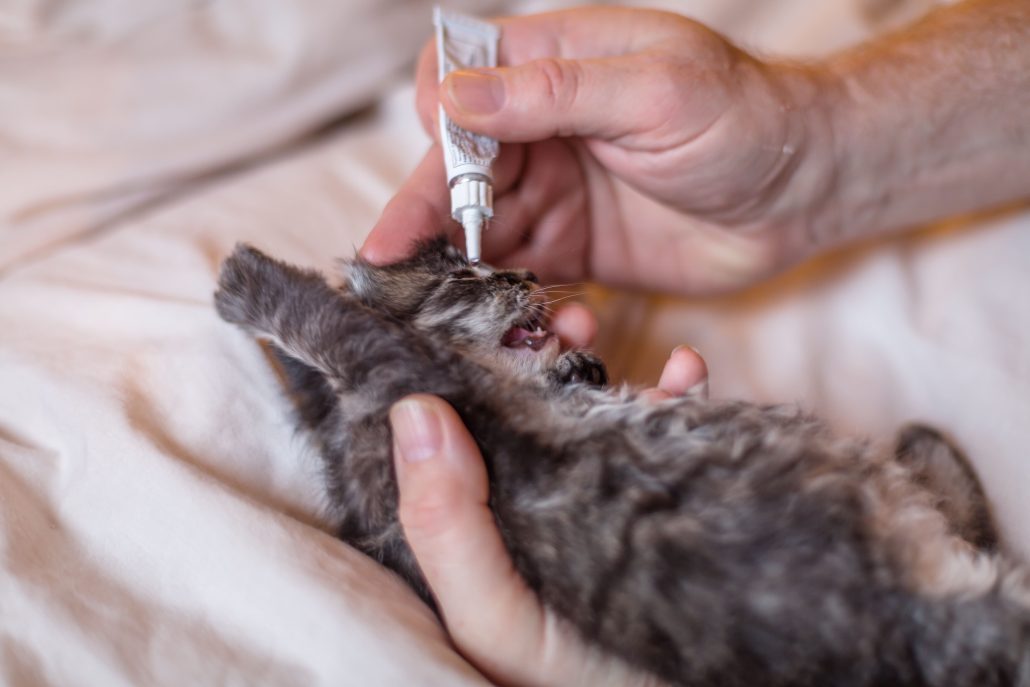
Essential Steps for a Successful Vet Visit
Preparing for your pet’s first vet visit involves a few key steps to ensure a smooth and successful experience. By taking the time to prepare in advance, you can set the stage for a successful visit that promotes your pet’s well-being.
Making An Appointment
Begin by allowing your dog to sit in and explore the car while the engine is off , gradually increasing the time they spend inside. This approach will help your pet to become more familiar and comfortable with the car’s surroundings.
Questions to Ask When Making the Appointment
Take advantage of the opportunity to ask important questions when scheduling the appointment. Inquire about any specific instructions or preparations needed prior to the visit. For example, if your pet should fast before the appointment or if there are any specific documents or records you need to bring along.
Collecting Necessary Information & Documents
For older, adopted pets, be sure to gather all relevant information about your pet, including their health history and any previous vaccination records. This information will help the veterinarian assess your pet’s overall health and provide appropriate care.
Read More: Why You Should Stay With One Vet
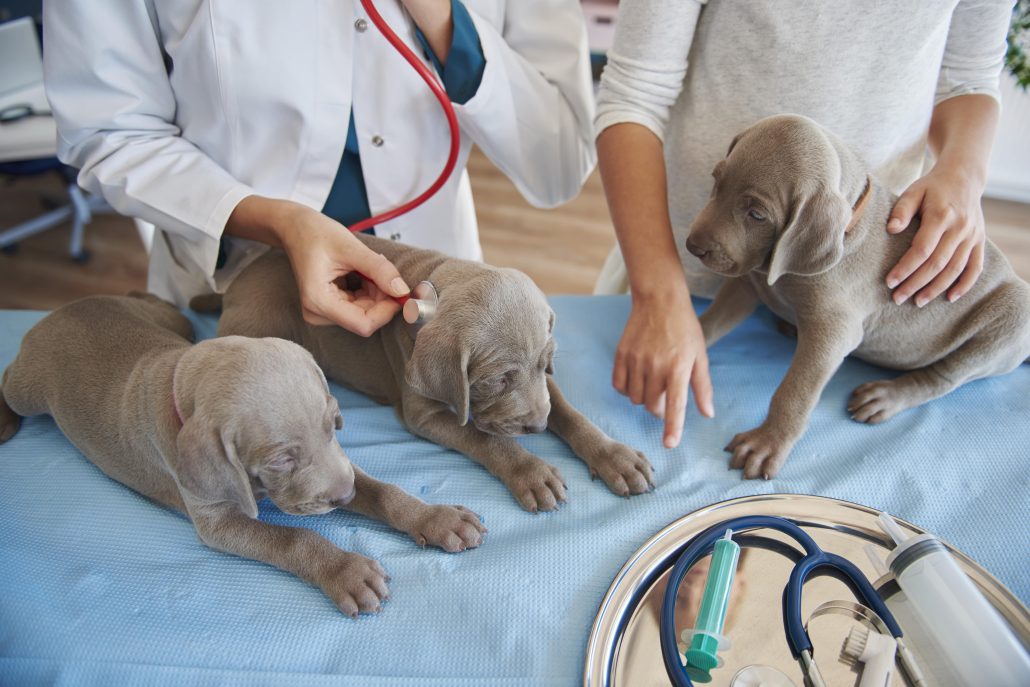
Preparing Your Companion For Their Visit
Once your appointment has been made and you have all the necessary document are ready, it is important to ensure that your furry friend feels comfortable and secure before their appointment. By paying attention to their needs and implementing some practical tips, you can make the entire experience as stress-free as possible for both you and your pet.
Allow for Adequate Time
Plan your schedule accordingly to avoid rushing on the day of the appointment. By giving yourself enough time, will help reduce stress and allow for a calm and unhurried atmosphere, which can positively impact your pet’s behaviour.
Maintain a Calm Environment
Before the appointment, create a peaceful and soothing environment at home. Minimise loud noises, disruptions, or any activities that could add to your pet’s anxiety. A calm atmosphere will help keep your pet relaxed and more receptive to the upcoming journey.
Provide Reassurance & Comfort
Offer gentle reassurance and comfort to your pet throughout the journey. Speak to them in a calm and soothing tone, pet them if it helps to relax them, and let them know you’re there for them. Your presence and support will go a long way in making them feel secure.
Practicing Handling & Touching
Take the time to familiarise your pet with being handled and touched in preparation for their vet visit. Gently touch their paws, ears, and mouth, rewarding them with treats and praise to create positive associations. This practice will help them feel more at ease during the examination.
Preparing a Pet Carrier or Leash
If your pet will be traveling in a carrier or on a leash, it’s important to introduce them to these items beforehand. Allow your pet to explore the carrier or leash, encouraging them with treats and positive reinforcement. By gradually getting them familiar with these tools, you can minimise their anxiety during transport.
Bringing Comfort Items for Your Pet
To provide a sense of security and familiarity, bring along comforting items for your pet. This could include their favourite blanket, a beloved toy, or an article of clothing with your scent on it. These familiar scents and objects can help reduce anxiety and provide reassurance during the vet visit.
Stick to Their Routine
As much as possible, try to maintain your pet’s regular routine on the day of the appointment. Stick to their usual feeding and exercise schedule, as familiarity can help provide a sense of stability and comfort during times of change or stress.
Mobile Pet Transport & At-Home Care
In some cases, mobile and at-home veterinary care services can be a convenient and stress-free alternative to visiting a traditional veterinary clinic. This allows your pet to remain in a familiar and comfortable setting while receiving necessary veterinary services.
Ensuring Car Safety
It is important to prioritise the safety of your pet during the car ride by securing them appropriately. If you are using a carrier, ensure it is properly fastened and secured in the car. If using a leash, consider using a pet seat belt or harness to prevent your pet from roaming freely in the vehicle. These safety measures not only protect your pet but also help create a calm and secure environment for them.
Familiarise Your Pet with Car Rides
If your pet is not accustomed to car rides, consider taking short practice trips before the actual appointment day.
This will allow them to gradually get used to the sensations and motion of being in a vehicle, making the journey to the clinic less intimidating.
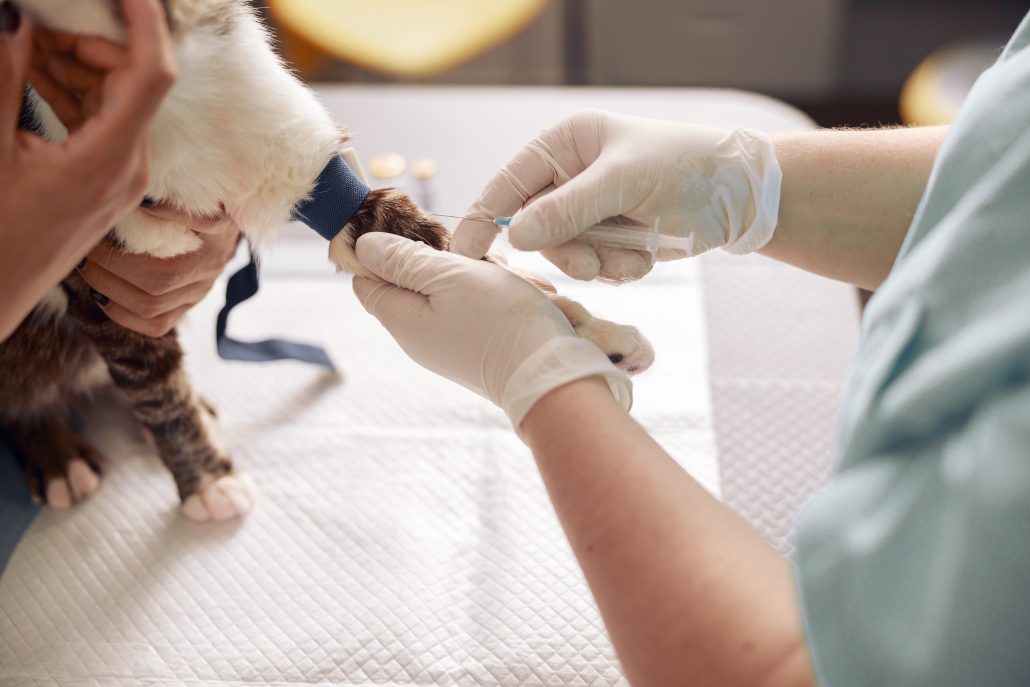
What To Expect During Your Vet Visit
Your pet’s appointment is here! While it may seem daunting, their first visit doesn’t need to be. Depending on the age of your vet and the reason for the visit there are some things you can expect to experience. With these, you can feel confident and prepared as you accompany your furry companion to the veterinarian for the very first time.
1. Greeting & Paperwork
As you arrive at the veterinary clinic, you will be greeted by the staff who will assist you with any necessary paperwork. Providing details about your pet’s medical history, vaccinations, and previous veterinary care will help the veterinary team better understand your pet’s needs.
2. Basic Health Assessment
During the visit, the veterinarian will conduct a thorough basic health assessment to evaluate your pet’s overall well-being. This may include:
- Weight and body condition to assess their physical health and identify any weight-related concerns.
- A temperature check to ensure their body temperature falls within a normal range.
- A examination of the heart and lungs to detect any irregularities or potential issues.
3. Vaccinations & Preventive Care
To protect your pet from common diseases and ensure their well-being, the veterinarian will administer essential vaccinations. This may include:
- Core vaccines are necessary for all pets to prevent widespread diseases.
- Non-Core vaccinations depend on where you live and your pet’s lifestyle
- Recommendations for flea, tick, and heartworm prevention to keep your pet safe and healthy.
4. Parasite Screening & Prevention
Parasites can pose a significant threat to your pet’s health. The veterinarian will perform screening tests to detect any presence of worms or other internal parasites. They will also provide recommendations and prescriptions for appropriate preventive medications to control and prevent infestations.
5. Dental Examination & Oral Care Recommendations
Depending on the age of your pet, the veterinarian will conduct a thorough dental examination, checking for signs of dental disease, tartar buildup, or other oral issues. They will provide recommendations for dental care practices such as regular teeth cleaning, dental diets, or dental treats to maintain optimal oral hygiene.
6. Nutritional Counselling and Dietary Recommendations
Proper nutrition also plays a crucial role in your pet’s health. Your veterinarian may discuss your pet’s nutritional needs based on factors such as age, breed, and any specific health conditions. They will provide guidance on selecting a balanced diet and appropriate portion sizes, ensuring your pet receives the necessary nutrients for optimal health.
7. Micro-chipping and Identification Options
To enhance the safety and security of your pet, your veterinarian may discuss microchipping as a reliable method of identification. They will explain the benefits of microchipping and other identification options such as collars with tags or personalised identification methods, ensuring your pet can be easily identified and reunited with you if they get lost.
8. Discussion of Spaying/Neutering
If it applies to your pet, the veterinarian will emphasise the imporance of spaying/neutering. They will provide detailed information about the optimal timing and important factors to consider when deciding to proceed with the procedure.
9. Addressing Any Concerns or Questions
Throughout the visit, you will have the opportunity to address any concerns or ask questions regarding your pet’s health, behaviour, or general well-being. The veterinarian will provide expert advice and guidance, addressing your concerns and offering appropriate solutions.
Read More: Secrets To A Stress-Free Vet Visit
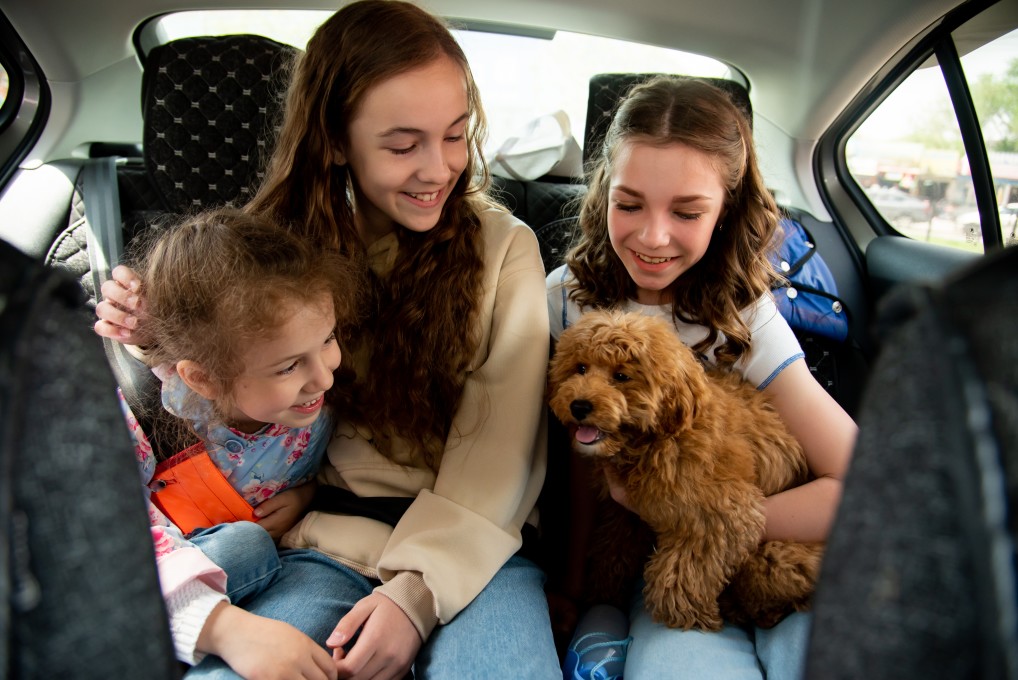
From Appointment to Arrival, Making Your Visit Easy!
Raising and caring for a pet can be one of the most rewarding experiences. Your pet’s first vet visit is an essential part of their overall care and well-being. By understanding what to expect and how to prepare, you can ensure a positive and stress-free experience for both you and your furry friend.
At The House Call Vet, we understand that this is just the beginning of your journey as a pet owner and are here to help you! By choosing The House Call Vet, you can enjoy the convenience of veterinary services tailored to your pet’s needs, all within the familiar surroundings of your home. From routine check-ups to specialised treatments, we are committed to providing comprehensive and compassionate care for your furry family member.

